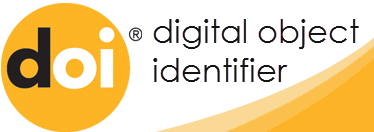টেকসই উন্নয়নের জন্য সুশাসন : ইসলামী নির্দেশনা l Good Governance for Sustainable Development Islamic Guideline
DOI:
https://doi.org/10.58666/xp6qd076Keywords:
good governance, morality, values, sustainable development, accountability;, সুশাসন, নৈতিকতা, মূল্যবোধ, জবাবদিহিতা, টেকসই উন্নয়নAbstract
Though the very term 'good governance' is of recent origin sacred texts of religions had shed light on this significant issue long ago. Good governance is usually depicted as a 'system of governance' in the arena of political usage. A meticulous scrutiny of history reveals that a good number of Prophets and Messengers of Allah (SWT) were involved in the governance of country as an inextricable part of their Prophethood and in discharging their responsibilities they had stressed on several ideals, principles and rules which in the tapestry of contemporary period may be treated as the “good governance system†from the Islamic point of view. Establishment of a sustainable society necessarily requires good governance.Emphasizing on the establishment of good governance in developing states global donor agencies including the United Nations Organization have been working to implement different strategies from the last decade of the twentieth century.This research paper has endeavoured to critically elucidate the western/conventionaltheories of good governance, their constituent elements, characteristics as well as the underlying reasons of their failure. Moreover, this article, following the descriptive method of research, has enumerated the features and application of Islamic good governance system in the light of the Qur’an and Sunnah. Furthermore, the author has taken recourse to spell out simple, universal and sustainable approaches to establish good governance. Given this backdrop the article argues for the inculcation of moral values, religious teachings and piety among the different strata of the society to construct a desired society, resolve the crisis of good governance and the strategic implementation of anti-corruption measures. Above all, the author has presented this research to facilitate the benign dream of establishing an equitable and balanced society through the realization of true model of Islamic good governance and its characteristics.
সারসংক্ষেপ : ‘সুশাসন’ প্রত্যয়টি হাল আমলের হলেও ধর্মীয় গ্রন্থসমূহে এ সম্পর্কে আলোকপাত করা হয়েছে বহু আগেই। সুশাসনকে রাজনৈতিক ব্যবহারে ‘শাসন ব্যবস্থা’ হিসেবে দেখা হয়ে থাকে। অনেক নবি ও রাসুল তাঁদের নবুওয়াতের অংশ হিসেবে শাসনকার্য পরিচালনা করেছেন এবং এই পরিচালনা করতে গিয়ে তাঁরা যে আদর্শ, বৈশিষ্ট্য এবং নিয়মাবলির ওপর গুরুত্বারোপ করেছেন, বর্তমানে আমরা সেগুলোকে ইসলামী দৃষ্টিকোণ থেকে সুশাসন ব্যবস্থা বলতে পারি। টেকসই সমাজ বিনির্মাণে সুশাসন একমাত্র অপরিহার্য শাসন ব্যবস্থা। বিংশ শতাব্দীর শেষ দশক থেকে জাতিসংঘসহ বৈশ্বিক দাতা সংস্থাগুলো উন্নয়নশীল দেশে সুশাসনের ওপর গুরুত্বারোপ করে বিভিন্ন কৌশলপত্র বাস্তবায়নে কাজ করছে। এ প্রবন্ধে পশ্চিমা সুশাসন তত্ত¡ আলোচনাপূর্বক তার উপাদান ও বৈশিষ্ট্যসমূহ উপস্থাপন এবং প্রচলিত ‘সুশাসন’ প্রত্যয়ের ব্যর্থতার কারণ পর্যবেক্ষণ করা হয়েছে। বর্ণনা পদ্ধতিতে রচিত এ প্রবন্ধে কুরআন ও সুন্নাহের আলোকে ইসলামী সুশাসনের বৈশিষ্ট্যসমূহ বর্ণনা ও তার প্রয়োগ-পদ্ধতি সম্পর্কে আলোচনার মাধ্যমে সুশাসন প্রতিষ্ঠার পথ সরলীকরণ, সর্বজনীন এবং টেকসইকরণের পন্থা সম্পর্কে আলোকপাত করা হয়েছে। এক্ষেত্রে নৈতিকতা, মূল্যবোধ, ধর্মীয় শিক্ষা ও তাকওয়াকে অপরিহার্য ভেবে এ গুণাবলি অর্জনেরমাধ্যমে কাক্সিক্ষত সমাজ বিনির্মাণ, সুশাসনের সংকট নিরসন এবং দুর্নীতি-প্রতিরোধ ব্যবস্থাসমূহের কৌশলপূর্ণ বাস্তবায়ন এবং এ বাস্তবায়নে ধর্মীয় শিক্ষার গুরুত্ব অনুধাবন সহজীকরণ করা হয়েছে। সর্বোপরি প্রকৃত ইসলামী সুশাসন ও তার বৈশিষ্ট্যসমূহের পূর্ণ প্রয়োগ-লক্ষ্য অর্জনের মাধ্যমে একটি বৈষম্যহীন সমাজব্যবস্থা গড়ে তোলার পবিত্র স্বপ্নপূরণে সহায়ক হিসেবে এ প্রবন্ধ উপস্থাপন করা হয়েছে।
References
Al-Qur ān al-Karīm
Muslim, Abū al-Hussain Muslim Ibn al-Hajjāj al-Qushayrī. 2003. Al-Musnad Al-Sahih. Dhaka: Islamic Foundation Bangladesh.
Yeahya, Abul Fatah Muhammad. 2019. Adhunik Rastrabiggan O Islam. Dhaka: Biswa Kalyan Publication.
Haque, Professore Mohammad Mozammel. 2013. Pauronity O Sushasan (1st Paper). Dhaka: Hasan Book House.
BDNews24. 2011. May 03, “Naitik Obokkhoy-e Durnitir Mul Karan”. https://cutt.ly/SrVs4Kj
Daily Janakantha. 2017. Aug. 10, “Sushasan Pratistha O Durnity Daman Chara SDG Arzan Sambhab Noy”. https://cutt.ly/XrX7fIx
Momen, Dr. A. K. Abdul. 2019. “Bangladesher Unnayan Agrozatra O Daridra Bimochan” Kaler Kantho, Dec. 11. Accessed Feb. 16, 2020.https://cutt.ly/8rVxgey
Ferdous, Hasan. 2016. “Sushasan O Unnayan” Prothomalo, Apr. 16. Accessed Feb. 16, 2020.https://cutt.ly/ErVcXpB
IPA Government. 1999. Accessed Feb. 16, 2020. https://cutt.ly/erVnEh5
Nasar, Md. Abu. 2017. “Durnitir Karan O Protikar” Nayadiganta, October 4. Accessed Feb. 16, 2020.https://cutt.ly/MrVam7R
Evan, Md. Rayhanul Iqbal. 2019. “Teksai Unnayan Lakkhamatra Arzan O Bangladesh” Bangla Tribune, June 2. Accessed Feb. 16, 2020.https://cutt.ly/NrNrGCs
Bin Amin, Md. Tofazzal. 2019. “Eto Unnayan Tobu Sushasaner Abhab” Dainik Sangram, June 29. Accessed Feb. 15, 2020.https://cutt.ly/irX7wL9
Tamesis, Pauline. 2015. “Teksai Unnayan Lakkha 16” Prothomalo, Sept. 28. Accessed Feb. 15, 2020.https://cutt.ly/VrX6gZD
Pew Research Center. 2020. Accessed Feb. 16, https://cutt.ly/IrBmUD8
Khokon, Rezaul Karim. 2016. “Sushasan O Unnayan: Prekkhit Bangladesh” Dainik Ittefaq, Apr. 14. Accessed Feb. 16, 2020.https://cutt.ly/JrVmTFf
Sustainable Development Commission. 2020. Accessed Feb. 15, https://cutt.ly/ZrVVl7E
The Straits Times. 2020. Accessed Feb. 16, https://cutt.ly/DrBn0Ux
Transparency International Bangladesh (TIB). 2020. Accessed Feb. 15, 2020. https://cutt.ly/prCtugJ
United Nations. 2020. Accessed Feb. 15, https://cutt.ly/HrX7rFX
Watch Mojo. 2020. Accessed Feb. 16, https://cutt.ly/OrBmGJM
Wonderslist. 2020. Accessed Feb. 16, https://cutt.ly/rrBmcEH
Wikipedia. 2020. “Teksai Unnayan Lakkhamatra”. Feb. 15, https://cutt.ly/OrX7rj4
Downloads
Published
Issue
Section
License
Copyright (c) 2020 ইসলামী আইন ও বিচার | Islami Ain O Bichar

This work is licensed under a Creative Commons Attribution 4.0 International License.





